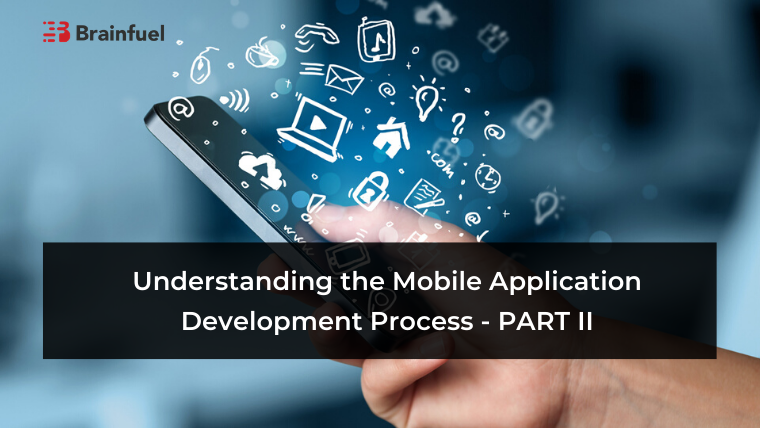Understanding the Mobile Application Development Process – PART II
Every step of the mobile application development process has its own importance in the entire development lifecycle. Mobile app developers and individuals associated with a project need to understand the importance of each step before moving on to the next step. In the previous blog, we discussed the initial steps to the app development process. Read on to learn the most important phase of the Mobile app development process
Developing the App
Once the features, layouts, and every single aspect of the application is finalized, the mobile application’s development starts. This step is a collection of several processes, some smaller in scale and larger in scale.
Our developers as mentioned above are always on the lookout for new technologies, new trends that are getting traction from the target demographic. The clients are told in advance about any changes to the application if there is any deviation from the original agreed-upon features.
The developer also needs to follow the guidelines from the respective platforms, accounts are set up in-app stores to make sure that the application follows all the guidelines and does not get rejected by the app store.
Our designers will make the skins for your app which lets the clients understand the look and feel of their mobile app. These screens actually represent the interface that the end-users will finally use to make interaction with the final app. In this stage, every detail is crucial and developers have to go back the first step and make sure that no stone is left unturned when it comes to the features, expectations, and demands of the clients and the end-user.
App Testing & Debugging
This is one of the most pivotal phases of the mobile development process. We go through functional testing, performance testing, memory leakage testing, interrupt testing, usability testing, installation testing, operational testing and more to make sure that applications pass through any technical shortcomings in the foreseeable future.
Launch the App
Once the application has gone through quality checks, the app has lived up to the satisfaction of developers and clients. The app needs to be launched in the respective app stores. It takes time to get approval from the app store around 4-6 days, while Android apps need 3 hours to get approval.
App Store Optimization and App Marketing
Once your app gets approval, start focusing on app store optimization and app marketing to create awareness of your app within your defined target audience.
Make research to find targeted keywords to use in your app title, the description before you submit your app. With an effective landing page that comprises app name, icon, screenshots, promotional videos, contact information, link to download app and other information helps in promoting your app efficiently. Remember, your app marketing and promotion are equally important as its development in order to enhance its reach and explore potential markets.
Conclusion
A meticulously developed mobile app effectively reduces the chances of rejection by the app store or being an app riddled with bugs. It is important to keep all the concerned individuals from developers to the clients in the loop about how the app development process is moving forward. A good app is also a result of proper communication, team coordination, and collaboration.









